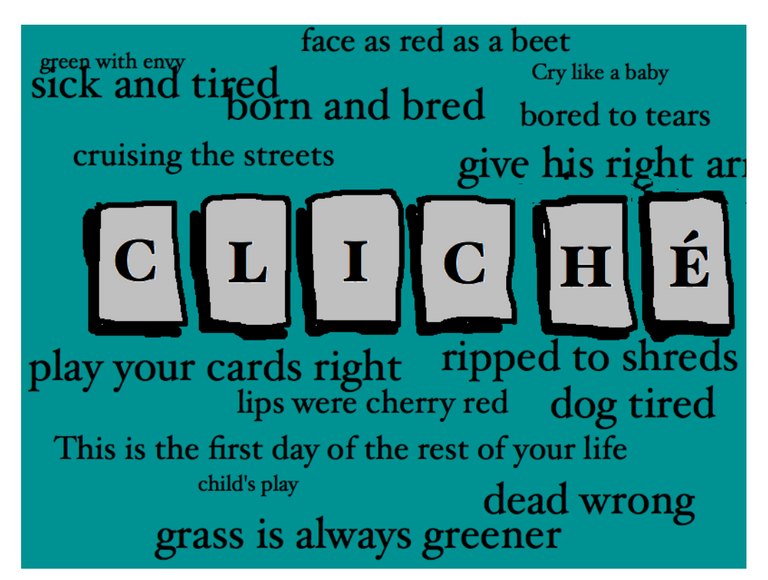
A famous person once said that to be a smart writer is very easy. All you need to do is sit in front of your typewriter, take a long sharp knife, and cut your veins deep.Well, don't loosen your bladder yet. This article is not about smart writing, but its counterpart — SPEAKING. How does one sound smart and sexy when s/he speaks? After reviewing tons of material that have been written on the topic, and talking to more than half a dozen experts in psychology, motivation, voice therapy, and even yoga, we have boiled down the list of techniques to a precious few. Use them and start sounding smart immediately.
1. Begin with awareness Be mindful! No, you don’t need to practice Zen to do this. An iPhone should do the trick. Simply record yourself talking to others (it can be your friends, your boss, or whoever). And then listen to it later. As you listen, you should easily be able to identify those instances where you sound…a little stupid. Look out for long pauses, sentence fragments, and fillers. No need to feel embarrassed. We have all been there. Becoming aware of your problem areas is half the battle won (by you, of course).
Be mindful! No, you don’t need to practice Zen to do this. An iPhone should do the trick. Simply record yourself talking to others (it can be your friends, your boss, or whoever). And then listen to it later. As you listen, you should easily be able to identify those instances where you sound…a little stupid. Look out for long pauses, sentence fragments, and fillers. No need to feel embarrassed. We have all been there. Becoming aware of your problem areas is half the battle won (by you, of course).
2. Say it with passion Have you ever heard speeches from the greats. Whether it be a Winston Churchill or a Hitler, a Tony Robbins or a Less Brown, all of them have one thing that amateurs don’t. PASSION! Being passionate is all about taking from your gut yourself permission to fully experience the emotion. Tinker with it, revel in it, make love to it, and become one with it. Only with true passion can you exude the supreme level of sincerity that no other else can match. Passionate speakers come across as an authoritative, authentic speaker, who by the very virtue of your presence will draw people’s attention and respect, and trust me, folks; they will be moved.
Have you ever heard speeches from the greats. Whether it be a Winston Churchill or a Hitler, a Tony Robbins or a Less Brown, all of them have one thing that amateurs don’t. PASSION! Being passionate is all about taking from your gut yourself permission to fully experience the emotion. Tinker with it, revel in it, make love to it, and become one with it. Only with true passion can you exude the supreme level of sincerity that no other else can match. Passionate speakers come across as an authoritative, authentic speaker, who by the very virtue of your presence will draw people’s attention and respect, and trust me, folks; they will be moved.
3. Confidence is the key Confidence is a very close associate of passion. One without the other will render your communication useless. Research has shown time and again that a highly confident speaker is subconsciously perceived by the listener to be more accurate, intelligent, and believable than a dope who lacks confidence. Why? Because with confidence comes a sense of certainty. So, to sound smart, you need to build confidence. And how does one do that? PRACTICE
Confidence is a very close associate of passion. One without the other will render your communication useless. Research has shown time and again that a highly confident speaker is subconsciously perceived by the listener to be more accurate, intelligent, and believable than a dope who lacks confidence. Why? Because with confidence comes a sense of certainty. So, to sound smart, you need to build confidence. And how does one do that? PRACTICE
4. Don’t think before you speak
When smart sounding people speak, notice how the words simply ooze from their mouths — the rhythmic flow of a sequence of sounds or words that somehow make sense. It is almost as if they don’t even have to think before they speak. Is this a gift? Not really. The trick is that they do not memorize their lines in absolutes but in sizable meaningful chunks. At any given time these experts have a bag of such pithy arsenals stored away in the recesses of their brain. When the occasion calls for it, all they have to do is dip into this and spout it out at the audience. With practice, it seems so natural.
5. Get rid of the killer fillers This has happened to all of us. You are chatting up a hot date and are about to say something spic to get hormones zinging, and uhh, mmm, aaah, something happens. Or let’s say you are talking to your boss and are slowly nudging the conversation to your two-year pending promotion, and before you do it, you screw it up by saying hhumm…aa..eee! I call these the killer fillers. They make you sound unsure and inarticulate. “One of the functions of 'Um' is to tell your audience that you’re not done talking yet and need to gather your thoughts," says Forbes contributor Selena Rezvani. Filler words can be more than dead space – they can be deadly. “Using excessive fillers is the most irritating speech habit,” says Susan Ward, a noted speech specialist. “They distract your listener often to the point that he doesn’t hear anything you say. Your message is entirely lost.” So, get rid of the killer fillers.
This has happened to all of us. You are chatting up a hot date and are about to say something spic to get hormones zinging, and uhh, mmm, aaah, something happens. Or let’s say you are talking to your boss and are slowly nudging the conversation to your two-year pending promotion, and before you do it, you screw it up by saying hhumm…aa..eee! I call these the killer fillers. They make you sound unsure and inarticulate. “One of the functions of 'Um' is to tell your audience that you’re not done talking yet and need to gather your thoughts," says Forbes contributor Selena Rezvani. Filler words can be more than dead space – they can be deadly. “Using excessive fillers is the most irritating speech habit,” says Susan Ward, a noted speech specialist. “They distract your listener often to the point that he doesn’t hear anything you say. Your message is entirely lost.” So, get rid of the killer fillers.
6. Model the masters With the advent of the digital age, listening to professional speakers (be it talk show hosts or disc jockeys or even Ted Ex) is just a click away. Chose a few you really admire for their eloquence (and other traits discussed thus far), and listen to them, all the while observing everything from their vocal intonations to body language (if on video). Then emulate. In a very short time, you can see a clear improvement in your own ability to sound smart when speaking.
With the advent of the digital age, listening to professional speakers (be it talk show hosts or disc jockeys or even Ted Ex) is just a click away. Chose a few you really admire for their eloquence (and other traits discussed thus far), and listen to them, all the while observing everything from their vocal intonations to body language (if on video). Then emulate. In a very short time, you can see a clear improvement in your own ability to sound smart when speaking.
7.Smile At the end of the day, it all comes down to keeping a cheery disposition. A genuine smile will make you more likeable, and the listeners more forgiving in case you screw up or say something really dumb.
At the end of the day, it all comes down to keeping a cheery disposition. A genuine smile will make you more likeable, and the listeners more forgiving in case you screw up or say something really dumb.
8. Keep your back straight but not stiff
 Posture matters if you want to sound smart. Keeping your back straight and relaxed conveys a sense of confidence to the listener. A hunched back often communicates, "You guys bore me, and I have no idea what I am saying." Equally annoying is a back that is ‘the ramrod straight’ — as if the speaker has been kicked solidly in the butt. Not only does this posture hurt the spine, but it tells the audience that you are in a fight mode. Just don’t do it.
Posture matters if you want to sound smart. Keeping your back straight and relaxed conveys a sense of confidence to the listener. A hunched back often communicates, "You guys bore me, and I have no idea what I am saying." Equally annoying is a back that is ‘the ramrod straight’ — as if the speaker has been kicked solidly in the butt. Not only does this posture hurt the spine, but it tells the audience that you are in a fight mode. Just don’t do it.
9. Watch your head Ever heard the phrase ‘Hold your head high’? When speaking, make sure you position your head upright with only a slight backward tilt. If done right, you will convey a modicum of healthy pride and even zeal. A head facing down can cause a lot of strain on your neck and hampers your clarity.
Ever heard the phrase ‘Hold your head high’? When speaking, make sure you position your head upright with only a slight backward tilt. If done right, you will convey a modicum of healthy pride and even zeal. A head facing down can cause a lot of strain on your neck and hampers your clarity.
10. Look’em in the eye
Looking into the audience’s eye is an effective strategy to tell the listener that you are speaking from your heart. It is not clear why this is so; but then, when it comes to the human mind, who knows anything about why it is what it is, right? Anyways, you shouldn’t overdo it either. Staring at the listener not only creates discomfort, but also can make them want to smack you for being creepy.
11. Use gestures Hands are powerful communicating tools. You can use them to greet (with a friendly wave), convey your openness (palms wide open), and serve as an important adjunct to your words, especially when you want to emphasize key points. Of course, be sensible. For example, if what you are saying doesn’t require any gesturing, then making sweeping or flying gestures will make the listeners think you missed an appointment with the head doctor. So, instead, you can simply rest your hands by your side.
Hands are powerful communicating tools. You can use them to greet (with a friendly wave), convey your openness (palms wide open), and serve as an important adjunct to your words, especially when you want to emphasize key points. Of course, be sensible. For example, if what you are saying doesn’t require any gesturing, then making sweeping or flying gestures will make the listeners think you missed an appointment with the head doctor. So, instead, you can simply rest your hands by your side.
12. Develop a dynamic voice A good speaking voice offers variation in the stream of sound. This is the feature that communicates your personality. According to voice specialist Dr. Carol Fleming, these variations reinforce meaning and increase the intelligibility of your speech. The sound of your voice carries your attitude about what you are saying and about the persons to whom you are speaking. Ideally, when you are introducing an important concept, slow down your pace so that the listeners will have sufficient time to absorb it; when summarizing or providing contextual information, increase your tempo. In general, use your common sense to know when to slow down or quicken your delivery.
A good speaking voice offers variation in the stream of sound. This is the feature that communicates your personality. According to voice specialist Dr. Carol Fleming, these variations reinforce meaning and increase the intelligibility of your speech. The sound of your voice carries your attitude about what you are saying and about the persons to whom you are speaking. Ideally, when you are introducing an important concept, slow down your pace so that the listeners will have sufficient time to absorb it; when summarizing or providing contextual information, increase your tempo. In general, use your common sense to know when to slow down or quicken your delivery.
13. Throw some zingers Humor is a powerful tool. If you can get your audience to laugh (or at least chuckle or smile), you have accomplished a very important goal, to keep the audience engaged. While you may not have the desire to do a full-on humorous speech, there is no reason why you can't add some humor to your presentations to mix things up and make your interaction much more lively than it would have been otherwise. The best way to do this is to prepare a few jokes (or steal them) which may be relevant to your discussion. And at the opportune moment, you dish them out. It is a good idea to distribute your zingers throughout the talk; otherwise, the listeners may end up merely giggling while dismissing your talk like that of a stand-up comedian.
Humor is a powerful tool. If you can get your audience to laugh (or at least chuckle or smile), you have accomplished a very important goal, to keep the audience engaged. While you may not have the desire to do a full-on humorous speech, there is no reason why you can't add some humor to your presentations to mix things up and make your interaction much more lively than it would have been otherwise. The best way to do this is to prepare a few jokes (or steal them) which may be relevant to your discussion. And at the opportune moment, you dish them out. It is a good idea to distribute your zingers throughout the talk; otherwise, the listeners may end up merely giggling while dismissing your talk like that of a stand-up comedian.
14. Make cliches your friend Since the time of Strunk and White (authors of the classic 'The Elements of Style'), English purists have always been dead set against using clichés. But I believe that clichés have been treated unfairly. When properly used, clichés will make your speech down-to-earth and easy to grasp.
Since the time of Strunk and White (authors of the classic 'The Elements of Style'), English purists have always been dead set against using clichés. But I believe that clichés have been treated unfairly. When properly used, clichés will make your speech down-to-earth and easy to grasp.
15. Breathe and... relax.... Proper breathing is extremely important not only to have a sound mind and body but also to achieve the pinnacle of eloquence. Says Allison Shapiro, a senior columnist of the Harvard Review, “Now, having taught public speaking and presentation skills for over a decade, I can say with confidence that the ability to harness your breath is one of the most important and least taught areas within public speaking.” So, how do we regulate our breath? Learn pranayama, a yogic discipline that has been tried and tested for centuries. Note that Prāṇāyāma is a Sanskrit word alternatively translated as 'extension of the prāṇa (breath or life force)' or 'breath control'.
Proper breathing is extremely important not only to have a sound mind and body but also to achieve the pinnacle of eloquence. Says Allison Shapiro, a senior columnist of the Harvard Review, “Now, having taught public speaking and presentation skills for over a decade, I can say with confidence that the ability to harness your breath is one of the most important and least taught areas within public speaking.” So, how do we regulate our breath? Learn pranayama, a yogic discipline that has been tried and tested for centuries. Note that Prāṇāyāma is a Sanskrit word alternatively translated as 'extension of the prāṇa (breath or life force)' or 'breath control'.
The last word I intentionally kept this for the last. Knowing what has to be done to make yourself sound smart is easy. But what good is it if not applied. In other words, practice. Remember, only practice can cause progress.
I intentionally kept this for the last. Knowing what has to be done to make yourself sound smart is easy. But what good is it if not applied. In other words, practice. Remember, only practice can cause progress.
You got a 1.92% upvote from @upmyvote courtesy of @maddyy!
If you believe this post is spam or abuse, please report it to our Discord #abuse channel.
If you want to support our Curation Digest or our Spam & Abuse prevention efforts, please vote @themarkymark as witness.